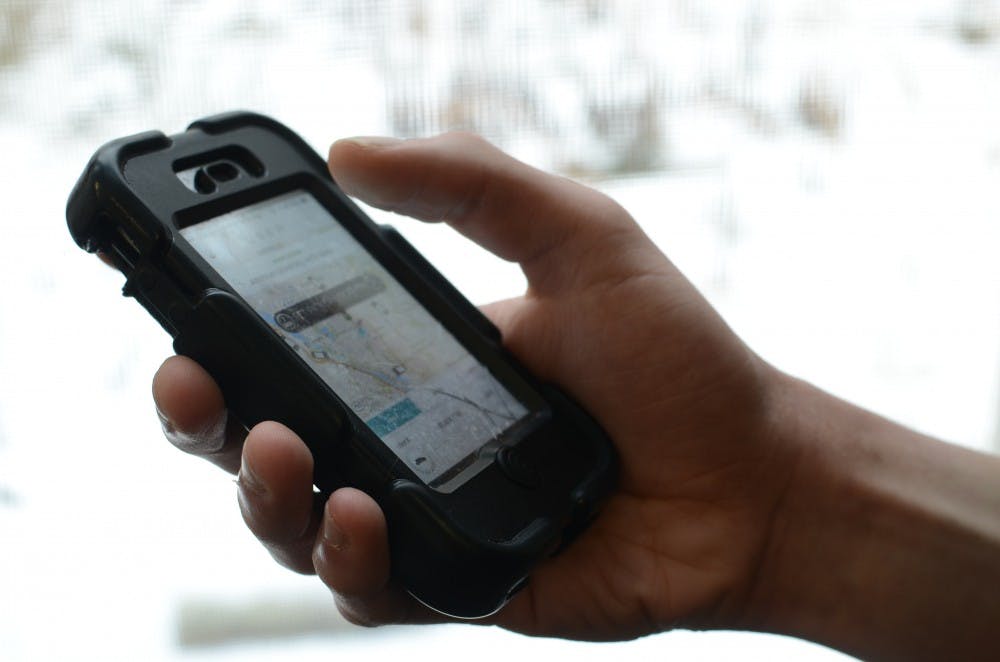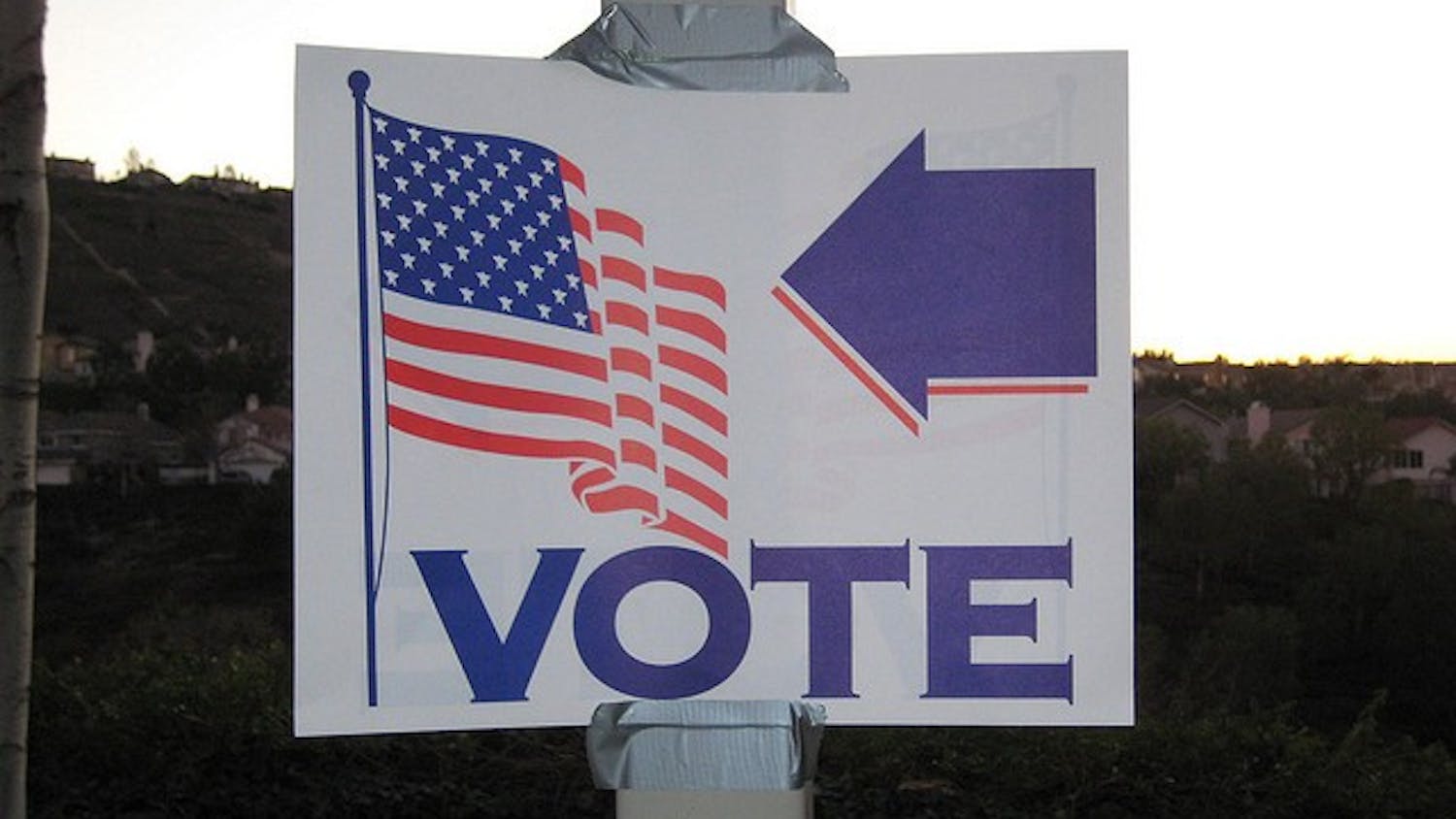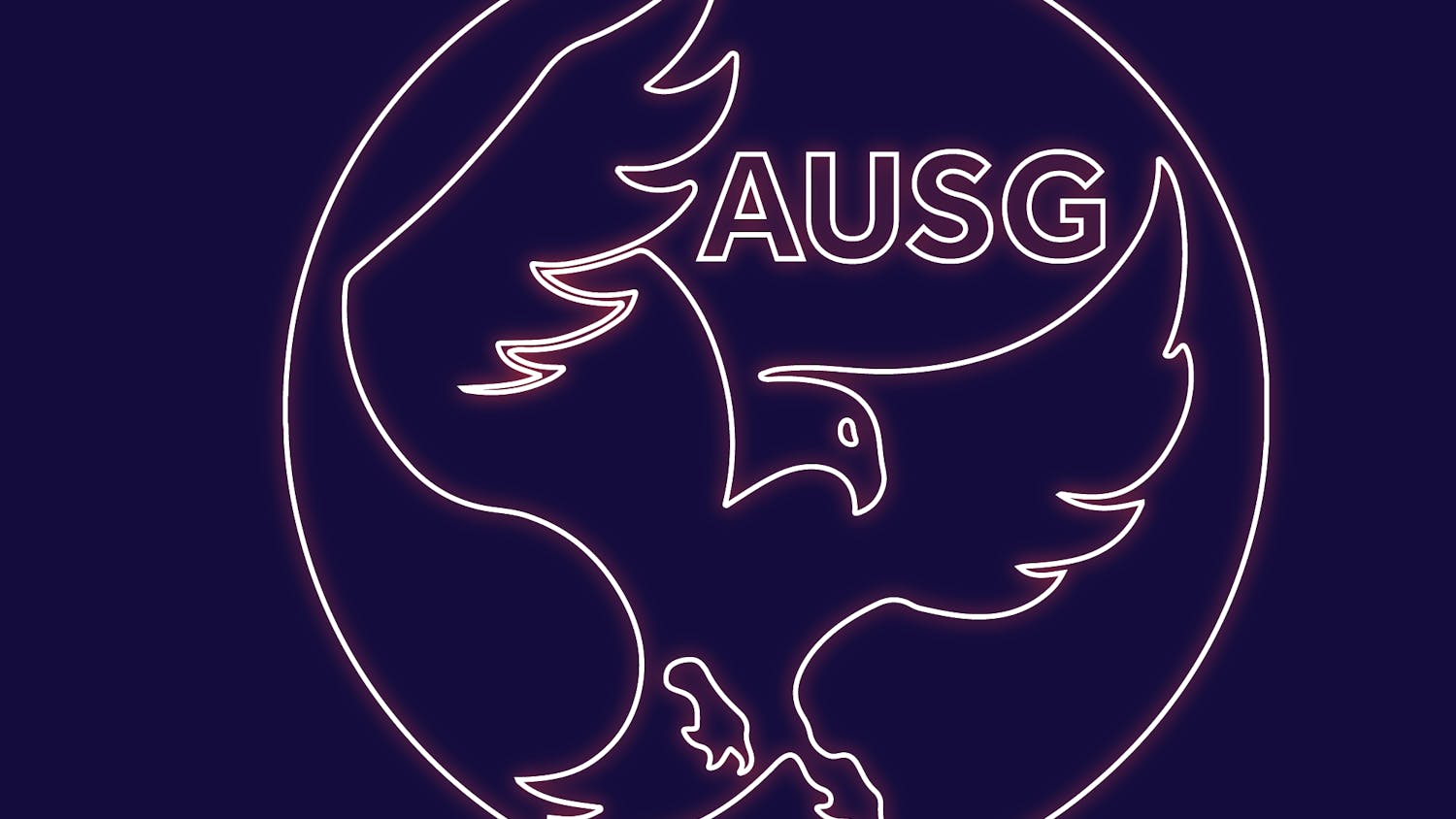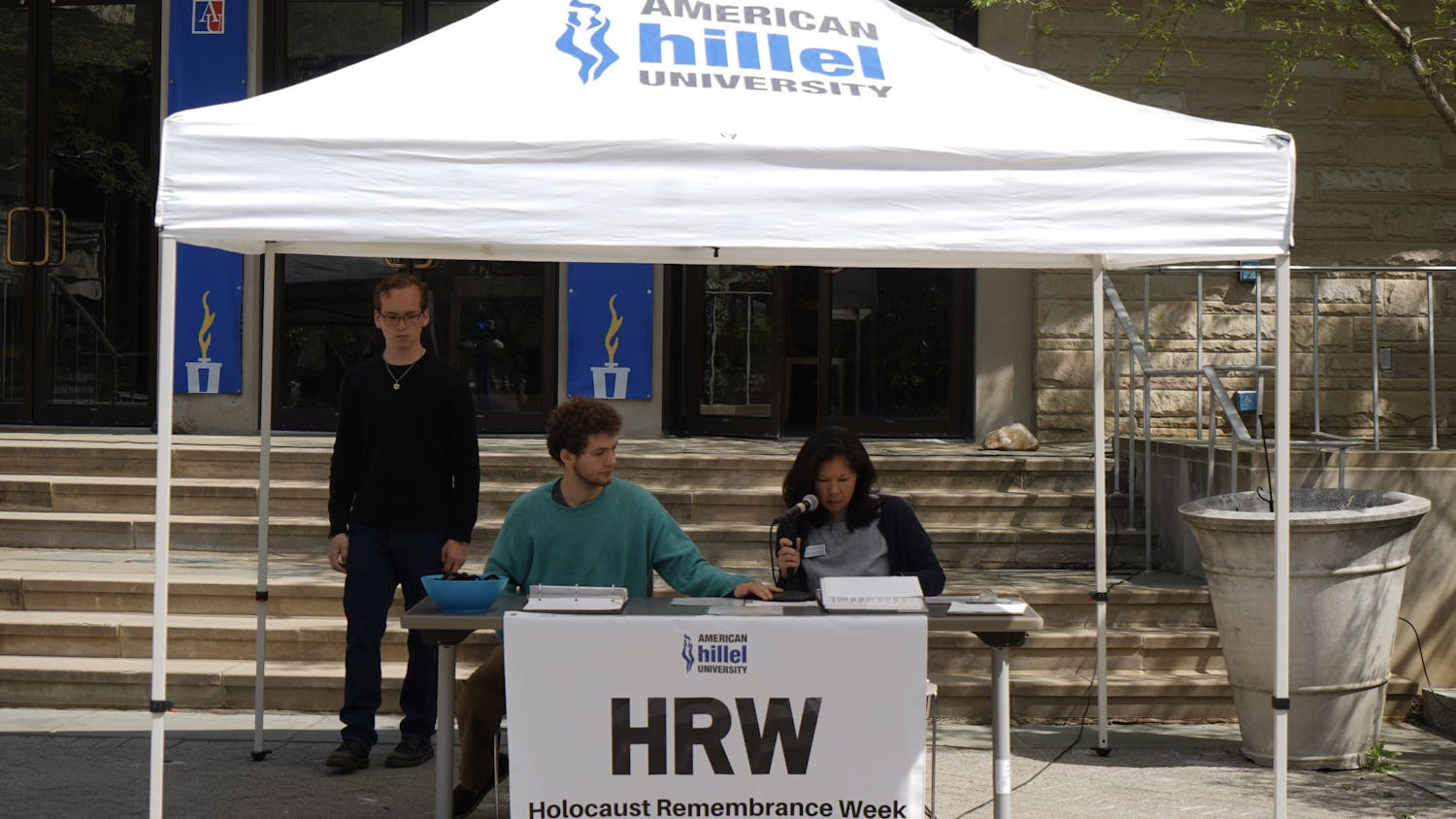Inappropriate conversations and safe-driving concerns have caused two AU students to feel uncomfortable traveling with the ride-sharing service Uber.
Dana Gooley, a senior in the School of Communication, said she experienced a worrying situation with a driver as she rode home alone in an Uber late at night.
“When we got to my house I had to ask him to unlock the doors, which he did not do right away. I got out of the car and went inside,” Gooley said. “He stayed in my driveway for about five minutes.”
Gooley’s experience is not alone in the unnerving incidents that AU students have faced during this academic year while using ride-sharing services.
Uber, the most prominent ride-sharing service, launched in 2009 in San Francisco and has since expanded to cities around the world including Paris, Singapore and Johannesburg. There are between 10,000 and 15,000 Uber drivers in the D.C. area, according to a report released by Jonathan Hall, the head of Policy Research at Uber Technologies.
Uber advertises itself as one of the safest private car transportation services, including taxis.
However, not all drivers in ride-sharing programs are familiar with local roads and rely heavily on the company-made app GPS system or the passenger for directions. The cost of a ride with Uber is determined by a flat rate in conjunction with the costs per mile traveled and time elapsed.
AU’s Department of Public Safety advised students to be aware of the approximate route of their destination in order to be able to direct authorities to a bad situation, or redirect a driver who seems to be ignoring the directions, according to an email from Director of Public Relations Kelly Alexander.
During the fall 2014 semester, Tyler Westrich, a freshman in the School of International Service, used Uber to get back to campus with three of his friends after a University College event. Westrich said he and his friends thought they smelled marijuana on the driver and believed the driver was impaired.
“From the beginning, he was lethargic,” Westrich said.
He said the driver drove 10 to 15 miles per hour below the posted speed limit, demanded that Westrich and his friends provide directions despite the GPS-equipped phone in the car and continuously drifted out of his lane.
“I think he was too disoriented to function,” Westrich said. “It was a frightening experience.”
Gooley said that in her experience with Uber, the driver that stayed in her driveway also did not follow the directions he asked her to provide.
“He continuously went the opposite direction I told him to,” Gooley said. “I told him to take a right on Massachusetts Avenue and he went left. I told him to get onto Wisconsin Avenue and he sped past the turn. It seemed like he was doing it on purpose.”
Gooley recounted that the driver was talking about his personal life during her ride.
“The whole time he was driving he was talking really loudly and aggressively about his ex wife and how she screwed him over,” Gooley said. “It was super uncomfortable and I was pretty nervous the whole ride.”
Both Westrich and Gooley gave their drivers one-star ratings on the Uber app and left poor reviews in the comments section. A one-star rating is the lowest rating that a user can leave a driver.
Low ratings can have consequences for drivers who face repeated poor reviews, according to a February article by the New York Observer.
Drivers have reported that an average rating below 4.6 can be a cause for suspension, according to the article.
Uber can also force drivers to pay out-of-pocket for a training course that covers navigational strategies and customer service, after receiving only a few low ratings, according to the Observer article. The training session in D.C. concludes with a 35-question test, which the driver must pass in order to keep his or her job.
Uber’s “whole new layer of transparency”
A representative from Uber responded to Westrich’s comment via email within 24 hours to compensate Westrich for the ride and ensure him that the company would look into the incident, he said.
Uber did not respond to Gooley’s comments, she said.
Taylor Bennett, a spokesperson for Uber, said the the Uber app had safety features, in an interview with the Eagle. One of these features includes the ability to access some information immediately after requesting a car: the driver’s name and photograph, the car model, license plate number and the current location of the car.
“All of these features have added a whole new layer of transparency and accountability that you just don’t get with other transportation services,” Bennett said. “After every ride, you can rate your trip and provide comments. We take that feedback very seriously — it allows us to take immediate action.”
Uber monitors client comments to determine if the rider and driver should be contacted or if the driver should be removed from Uber, depending on how serious the allegations are, he said.
Bennett said Uber’s screening process for drivers is “very stringent” and more extensive than that which taxi drivers go through.
According to the District of Columbia Taxicab Commission, anyone applying to drive a taxi or limousine must pass a driving exam specific to taxis or limousines. The driver’s application is accompanied by a letter of reference, proof of citizenship or permanent residency, the applicant’s D.C. driving record and medical history and payment for outstanding traffic tickets.
Although the D.C. Taxicab Commission’s website does not specifically mention background checks for drivers, a portion of the application is dedicated to crimes which immediately disqualify an applicant, as well as a section for applicants who are on parole to describe the nature of their conviction. Uber, on the other hand, conducts multiple background checks during the application process for new drivers.
“Every single partner that accesses the Uber platform has to go through a local, state and federal background check,” Bennett said. “Background checks include everything from sexual offenses to violent crimes to driving records. Every single one must go through that process and pass.”
Getting home safely
Westrich and Gooley both recommended that Uber users should end a ride that is uncomfortable, unsafe or inappropriate.
“If someone is making you uncomfortable, end the trip as soon as possible and report it,” Gooley said.
Public Safety had similar advice to students who feel uneasy while using a private car transportation service.
“If the driver drives irresponsibly, or the driver tries to make a deal with you, or claims the meter is broken, get out at the first safe opportunity,” Alexander said in an email on behalf of DPS.
The University would not comment on any particular company and, instead, provided general advice to students using vehicular transportation through services like Uber or D.C. taxis.
Public Safety also recommends simple methods to stay safe, including knowing the approximate route to the destination, sitting in the back seat, staying aware of the surroundings and not getting distracted by technology as well as making sure the seat belts in the back seat are functional.
“Be aware of your surroundings,” Alexander said in an email on behalf of Public Safety. “If something does happen, you will be able to give your location to responding authorities. Once you have reported the incident to local authorities, report the incident to AU Police so that the student gets the appropriate and necessary support.”
Public Safety’s website also provides information on how to get home safely via the Safe Ride Back to Campus Program. AU students in D.C. or within 10 miles of the city can take a taxi to Public Safety and have the taxi fare billed to their student account, according to AU’s website.
The Safe Ride to Campus Program, which may be an alternative to a ride-sharing service, may only be used by students enrolled at AU who have no other way to get home. To use this program, students may call 202-885-2527.
“If you have a bad feeling about the driver, don’t be afraid to have him stop, get out and order another driver,” Westrich said.





